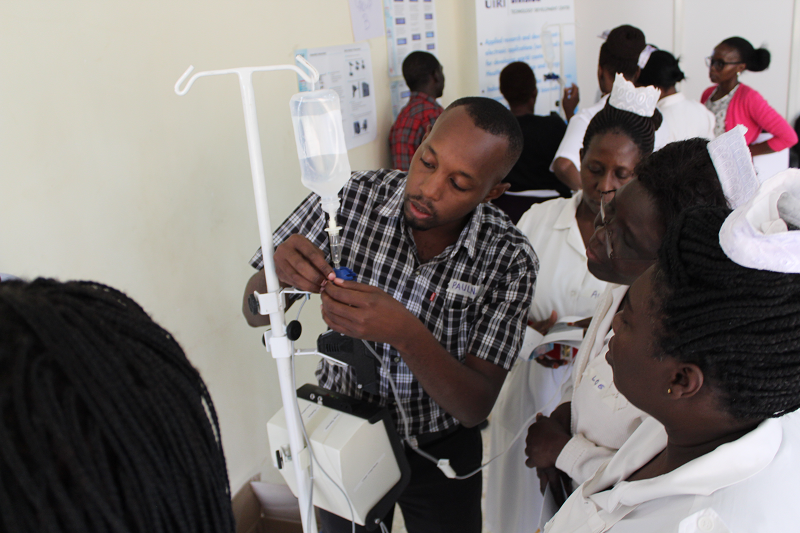
Photo: Philippa Ngaju Makobore
Biomedical Engineering (BME) has the potential to drive improvements in healthcare wherever it is deployed. An earlier study and the audit of the skills, capacity and translational capability in East Africa confirmed this potential but indicated a number of structural, regulatory and resource barriers limiting effectiveness. We now wish to compare the East and West African regions using similar survey instruments to assess the points of difference in policies, government expectations and maturity of BME as a profession and of the medical technology (MedTech) industry.
The study conducted in East Africa indicated that BME and its output had the potential to significantly improve healthcare provision if barriers and gaps in skills, resources, translational competence and regulations were addressed. We now wish to test our main findings within an equivalent but distinct region in Africa. Although much larger and more diverse, West Africa’s GDP per capita is only 1.5 times that of the EAC ($1,777 compared to $1, 184) suggesting that comparing these regions may provide valuable lessons that could be applied to both settings.
With main collaborators in Uganda and Ghana, we will share findings and consensus from East Africa and gain preliminary assessments on their applicability to West Africa. Selected topics – MedTech industry, BME curricula in training institutions, regulatory processes, presence and role of professional associations – will be surveyed in West Africa using methodology developed for the earlier project. We will modify these survey instruments and approaches with lessons learned from East Africa and conditions and situations appropriate to West Africa. A small team of project coordinators will conduct surveys, interviews, round table meetings and database searches to gather data on these topics. We will bring these preliminary findings to a virtual workshop to be hosted by the University of Ghana to which will be invited representatives from the topic areas listed from West Africa countries. It is likely that this workshop will concentrate on existing connections (particularly with Nigeria, Sierra Leone, The Gambia and Liberia as well as Ghana itself) but expand these where feasible.
The primary focus of this project is the facilitation of the supply of medical devices and medical equipment appropriate to the healthcare needs of the populations of East and West Africa. We also want to understand the impact the supply of biomedical engineers at diploma, graduate and postgraduate levels has on the quality and suitability of this provision. This project and its follow-on activities have the potential to have a significant impact on government policies for medical equipment procurement and training of engineers to design, develop, manufacture and service locally-produced MedTech products. The comparison of the two African regions has the potential for lessons to be learned in both directions and allow for the implementation of findings.